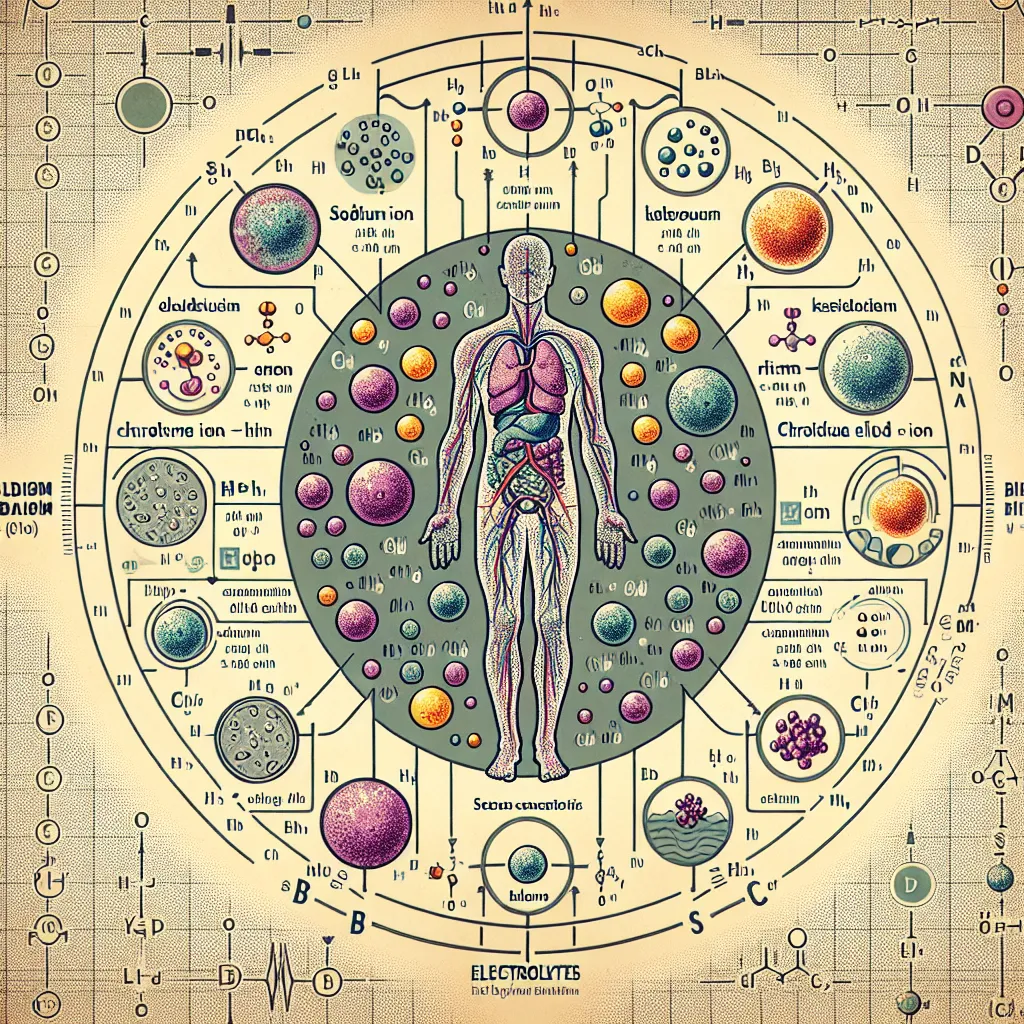Electrolyte balance is a crucial concept in physiology and sports science. As an IELTS candidate, understanding this term can significantly enhance your vocabulary and help you tackle questions related to health and fitness. Let’s explore this term in depth to prepare you for the IELTS exam.
Definition and Pronunciation
Electrolyte balance [ɪˈlektrəlaɪt ˈbæləns]
Noun phrase
Definition: The state of equilibrium between various electrolytes in the body, crucial for maintaining proper cellular function and overall health.

Context and Usage
Examples in Context
-
Athletes must maintain proper electrolyte balance to prevent dehydration during intense workouts.
Analysis: This sentence highlights the importance of electrolyte balance in sports performance. -
The doctor monitored the patient’s electrolyte balance carefully after the surgery to ensure a smooth recovery.
Analysis: Here, the term is used in a medical context, emphasizing its significance in post-operative care. -
Excessive sweating can disrupt your body’s electrolyte balance, leading to fatigue and muscle cramps.
Analysis: This example illustrates the consequences of an imbalance, connecting it to common symptoms. -
Consuming sports drinks can help restore electrolyte balance after prolonged physical activity.
Analysis: This sentence provides a practical solution for maintaining electrolyte balance, relevant to sports nutrition. -
Understanding electrolyte balance is crucial for healthcare professionals treating patients with kidney disorders.
Analysis: This example demonstrates the term’s relevance in specialized medical fields.
Common Contexts
- Sports medicine and nutrition
- General health and wellness
- Medical diagnosis and treatment
- Physiology and biochemistry studies
Frequency in IELTS
The term “electrolyte balance” is moderately common in IELTS, particularly in:
- Reading passages related to health, sports, or nutrition (Academic module)
- Listening sections discussing medical topics or fitness advice
- Speaking tasks about health and exercise
- Writing Task 2 essays on health-related topics
Vocabulary Analysis
Word Structure
-
Electrolyte: [ɪˈlektrəlaɪt] (noun)
- electro- (prefix): related to electricity
- -lyte (suffix): indicating a substance decomposable by electrolysis
-
Balance: [ˈbæləns] (noun)
- From Old French “balance” meaning “scales”
Synonyms and Antonyms
Synonyms:
-
Electrolyte equilibrium [ɪˈlektrəlaɪt iːkwɪˈlɪbrɪəm]
Noun phrase: A more technical term often used in medical contexts. -
Ionic homeostasis [aɪˈɒnɪk həʊmɪˈəʊsteɪsɪs]
Noun phrase: A highly specialized term used in physiology and biochemistry. -
Mineral balance [ˈmɪnərəl ˈbæləns]
Noun phrase: A more general term that includes electrolytes and other minerals.
Antonyms:
-
Electrolyte imbalance [ɪˈlektrəlaɪt ɪmˈbæləns]
Noun phrase: Describes a state where electrolytes are not in proper balance. -
Electrolyte disturbance [ɪˈlektrəlaɪt dɪˈstɜːbəns]
Noun phrase: Indicates a disruption in the normal electrolyte levels.
Memory Techniques
Mind Map
Create a mind map with “Electrolyte Balance” at the center, branching out to:
- Key electrolytes (sodium, potassium, chloride, etc.)
- Factors affecting balance (hydration, diet, exercise)
- Symptoms of imbalance (fatigue, cramps, dizziness)
- Maintenance methods (proper hydration, balanced diet)
Mnemonic Story
Imagine “Ellie the Athlete” balancing on a tightrope. She carries different colored bottles representing electrolytes. As she walks, she must keep all bottles level to maintain her balance. This image connects the concept of balance with electrolytes in an athletic context.
Practice Exercises
-
Write a paragraph explaining the importance of electrolyte balance for marathon runners.
-
Create a dialogue between a doctor and a patient discussing electrolyte imbalance symptoms.
-
Describe the process of maintaining electrolyte balance during a hot summer day.
-
Compare and contrast electrolyte balance in endurance athletes versus sedentary individuals.
-
Explain how different diets might affect electrolyte balance, using specific examples.
Remember to use the term “electrolyte balance” and related vocabulary in your responses.
Conclusion
Understanding “electrolyte balance” is valuable not only for the IELTS exam but also for your general knowledge about health and fitness. This term bridges biology, chemistry, and sports science, making it a versatile addition to your vocabulary. Practice using it in various contexts to solidify your understanding and improve your ability to discuss health-related topics in English.
To further enhance your IELTS preparation, consider exploring related topics such as sports hydration and recovery drinks. These will complement your understanding of electrolyte balance and broaden your vocabulary in the field of sports science and nutrition.
We encourage you to practice using “electrolyte balance” in your own sentences and discussions. Share your examples or any questions you have about this term in the comments section below. Keep expanding your vocabulary, and you’ll be well-prepared for success in your IELTS exam!